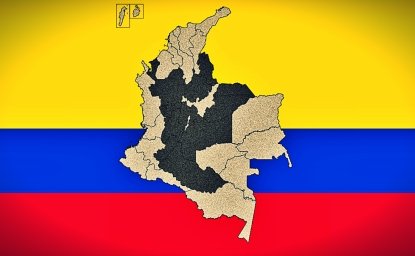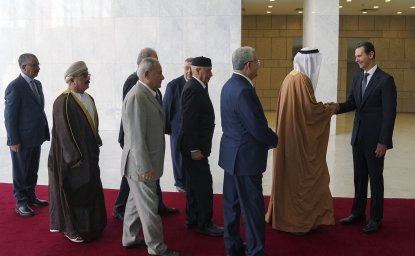EXECUTIVE SUMMARY
The objective of this paper is to analyze how criminal agendas were addressed during the peace negotiations between the Revolutionary Armed Forces of Colombia (FARC) and the Government of Colombia (2012-2016) and to highlight key lessons that can be drawn for future application.
Key innovations:
Illicit and criminal economies, ranging from drug trafficking, illegal mining, kidnapping and extortion have shaped the nature, dynamics and duration of the 52-year long conflict in Colombia. As FARC leadership and representatives from the Colombian Government entered the peace talks in 2012, there was no escaping the need to take into account criminal agendas on the prospects of peace in the country. Negotiators recognized that criminal agendas were a threat to the process but also to the very social fabric of the country and developed key innovations to tackle them, including:
- The provision of credible security guarantees to FARC’s membership, particularly from criminal organizations. This was key to convincing the FARC to lay down their arms and commit to the peace process;
- A paradigm shift in the strategy to combat illicit economies. The negotiators agreed to adopt a public health-based approach to dealing with the problem of illicit drugs and agreed to work together to combat organised crime. The FARC agreed to leverage its criminal insight to combat illicit economies and the government agreed to create viable alternatives to illicit economies for FARC members and local communities;
- A shift away from criminal to restorative justice, creating alternative sentencing models that privileged reconciliation over incarceration. The process also found practical ways to distinguish between politically-motivated crimes and those committed for profit-driven motives. This helped persuade the FARC to open up about its hidden criminal agendas.
Challenges and unintended consequences:
Despite these innovations, a series of challenges and unintended consequences threatened the viability of the negotiation process and the ultimate agreement:
- The threat of dissidence and recidivism among FARC members remained a constant threat throughout the negotiations and continues to be a primary source of preoccupation for public authorities. Criminal groups continue to lure FARC members into their fold by offering double the stipend that they will receive through disarmament and demobilization;
- The lack of state capacity to guarantee the security of FARC members, their families and the communities in which they operated is becoming evident. A worrying number of social leaders have been assassinated and criminal organisations are moving into FARC-controlled territory, leaving populations vulnerable to criminal control;
- Since the beginning of the negotiations, coca production has risen dramatically, causing many opposition leaders to question the effectiveness of the peace process and provoking serious questions about the capacity of the state to contain illicit economies.
Key recommendations:
To tackle these challenges, this paper identifies a series of policy recommendations for both national and international actors supporting the peace process and its implementation.
- Cultivate a robust knowledge of criminal agendas today and assess how they will evolve tomorrow: the link between peace negotiations and criminal agendas is a two-way interaction. Criminal actors are great entrepreneurs and have a tremendous capacity to adapt to changing circumstances on the ground. It is essential that public authorities understand the types of new opportunities and governance vacuums that will be created by removing key actors from the criminal market.
- Devise new and inclusive strategies to deal with pervasive illicit economies including: providing credible economic opportunities and alternative sources of livelihood, recovering criminal assets and developing options for criminal organizations to transition into the lawful order.
- Place emphasis on the social dimensions of re-integration by developing longer-term strategies that go beyond economic incentives and include psycho-social support, the development of non-violent networks, and tailored incentives that speak to each profile and category of the population that is being re-inserted.
- Target capacity building to enable state authorties to bring the most pernicious criminal actors to justice: In Colombia, this means strengthening the capacity of the Attorney’s General Office, identifying and supporting rule of law reformers (especially in the security sector) and localizing anti-corruption efforts.
Published by the United Nations University Centre for Policy Research, Crime-Conflict Nexus Series: No 6, April 2017
Photo Credit: Marco Suárez / Wikimedia Commons
Authors

Security and Conflict Resolution Expert; Former Consultant, United Nations Development Program and Organization of American States

Latin America Program
The Wilson Center’s prestigious Latin America Program provides non-partisan expertise to a broad community of decision makers in the United States and Latin America on critical policy issues facing the Hemisphere. The Program provides insightful and actionable research for policymakers, private sector leaders, journalists, and public intellectuals in the United States and Latin America. To bridge the gap between scholarship and policy action, it fosters new inquiry, sponsors high-level public and private meetings among multiple stakeholders, and explores policy options to improve outcomes for citizens throughout the Americas. Drawing on the Wilson Center’s strength as the nation’s key non-partisan policy forum, the Program serves as a trusted source of analysis and a vital point of contact between the worlds of scholarship and action. Read more

Explore More
Browse Insights & Analysis
Voting for Peace: Understanding the Victory of “No”



